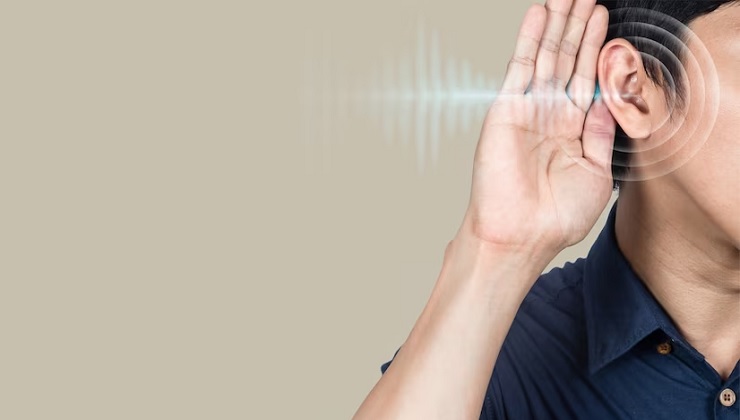What is auditory memory? Its function and methods of strengthening it

Before you start reading this article, think about your favourite song. This song is not played now, but you remember the singer’s voice and the music. This is auditory memory, which is also called echo memory. Humans can remember what they have experienced in different ways even after it is over. One of these methods is auditory memory, which we will discuss in this article.
What is auditory memory?
Auditory memory is one of the sensory memories and stores the information that enters the brain from the ear for a few seconds so that the brain has enough time to process and understand the sound. Researchers researching this memory in the 1970s realized that if a person ignores auditory information, it will fade after a few seconds. After that, it will be challenging to recall.
When you look at something, you have enough time to keep looking and remember the details. However, sounds do not have this feature; you only hear each sound once unless there is a voice recorder that replays it. For this reason, the auditory memory stores the sound you listen to for a short time so that you have the opportunity to process it. After that, if you pay attention to the sound, its details enter the short-term memory and, in some cases, are transferred to the long-term memory.
Applications of auditory memory in daily life
You use your auditory memory every day. When you listen to music, your brain remembers the notes and the singer’s voice from the previous few seconds, and a coherent song forms in your mind. When you talk to someone, the last few seconds of what he said remain in your memory so that you can connect what he said and understand what he meant.
When you hear a sound around you, you remember it briefly to process it and react appropriately. For example, suppose you must pay more attention while crossing the street and hear a car horn. In that case, this sound will remain in your memory for a while to process, react appropriately, and move away from the car. All these cases are applications of auditory memory in daily life.
One of the fascinating applications of auditory memory is in horror entertainment centres. Places like escape rooms, multi-dimensional cinemas, or cinemas that show horror and thriller movies usually have speakers that transmit expressive and realistic sounds. So when these sounds are stored in your memory, the brain imagines you are in a scary environment and releases adrenaline.
How are sounds stored in memory?
The auditory memory of children and adults works unconsciously. When sound waves enter the human ear, they affect the auditory nerve, and its electrical impulses are transmitted to the brain. After receiving sound in the brain, an auditory memory is formed. The brain processes the details of this memory and stores it in the primary auditory cortex. Now, the brain will have enough time to understand the details of the sound and can transfer it to the working memory.
How long do sounds stay in this memory?
Our ears constantly listen to surrounding sounds, and what is stored in auditory memory is quickly replaced by new data. According to research, information stays in this part of the brain for only 2 to 4 seconds. After that, if needed, they are transferred to short-term memory; otherwise, they are forgotten forever.
It is interesting to know that a person’s auditory memory is more vital than his visual memory. When you’re looking at something, if you don’t consciously remember it, you’ll forget it after a few milliseconds. The reason is that usually spectacular things don’t disappear, and you can stare at them until the brain finishes processing. But the sounds are heard for a very short time and then disappear. Therefore, they should remain in the auditory memory longer to allow the brain to process the information.
What factors cause auditory memory impairment?
Auditory memory develops and develops in children from 2 to 6 years old. But as he reaches middle age, he gradually weakens. According to the experiments, elderly and middle-aged people perform weaker than young people in tasks that require audio memory. However, this does not mean all people suffer from auditory memory impairment in old age. The most important causes of this memory disorder are:
- stroke ;
- language processing disorder (usually present in children);
- hearing disorders;
- Deafness;
- damage to the temporal lobe of the brain;
- age increasing.
According to research, memory-related diseases such as Alzheimer’s or dementia do not affect auditory memory. Of course, the patient may be unable to process the information received from the acoustic part due to short-term memory problems and may not react correctly to sounds.
People with auditory memory impairment have difficulty understanding sounds and speech, have difficulty speaking, and cannot learn new things.
Ways to strengthen auditory memory in adults and children
As we said, audio information remains in the memory for 2 to 4 seconds. Of course, based on the research conducted on different people, some people can store audio details for up to 9.7 seconds. This does not mean all people should have an auditory memory of 10 seconds; less than this amount is considered a disorder. Still, it means that auditory memory capacity is different in different people.
Researchers believe there are ways to boost auditory memory in adults, especially those whose memory has been weakened by stroke or concussion. The ways to strengthen this memory are:
- Listen to music and listen to each song several times. The information presented to the mind in music remains the reason for a long time.
- Talk to others, stay on topic, and remember what you hear.
- Focus on a specific sound, especially in a noisy environment. For example, if you are talking to someone on the street, focus all your attention on the other person’s tone of voice, speak, and ignore the sound of cars.
- Protect your head and be careful not to get hit or hurt.
- Use a combination of audio and visual memory. When you listen to the sound of something, try to associate it with the image; this will make it more likely that the information will stick in your memory.
Treatment of auditory memory disorder in children
Strengthening listening memory in children with language processing disorders or hearing loss and deafness requires specialized exercises. In speech therapy or cognitive exercises, these children gradually learn to keep the sounds in memory for a while, process them, and show the necessary reaction to the sound.
The relationship of auditory memory with other types of memory
In general, humans have four different types of memory: Sensory memory, short-term memory, working memory, and long-term memory. Let’s examine how our auditory memories fit into these memories.
Sensory memory stores incoming information from the five senses for a short period. For example, auditory memory is a kind of sensory memory that is responsible for keeping ear inputs. When a sound is repeated several times, or you consciously pay attention to it, or even a sound that is associated with a memory in your mind, short-term memory is activated and stores the sound. So it will be remembered after 4 seconds. However, short-term memory can be more powerful, and the possibility of forgetting what you hear is still high.
According to research, information remains in short-term memory for only 30 seconds.
After short-term memory comes working memory. Some scientists and doctors say that working memory is a part of short-term human memory. Still, others consider it a separate space for storing information. Active memory holds a limited amount of data to perform cognitive tasks. For example, when a musician hears a few notes, he can keep them in his active memory and play the same messages a few minutes later.
When a sound is repeated enough, it will enter long-term memory. That is why you quickly remembered your favourite song at the beginning of the article. Memories stored in long-term memory are in two forms; Some are stored unconsciously, and others result from a conscious effort to remember some things.
Last word: Auditory memory is the hidden miracle of man
It may have happened to you that you heard a familiar voice somewhere, and you turned towards it, and memories came alive in your mind. This results from the cooperation of your auditory and long-term memory, which sometimes connects you to good memories and periodically refreshes pain. Using this memory, you can learn different things, enjoy music, and communicate with others. In this article, we examined the function of this part of the brain. If you have any questions about this, ask in the comments section, and if you have experience or information about the treatment of auditory memory disorder in adults, share with us to complete the article.







